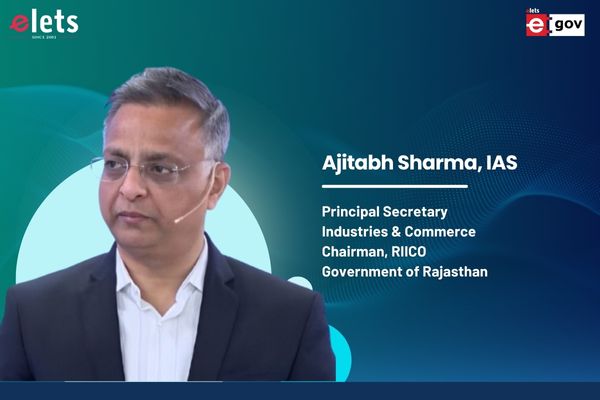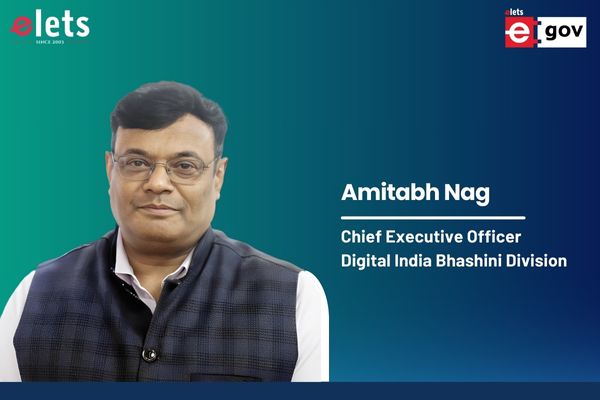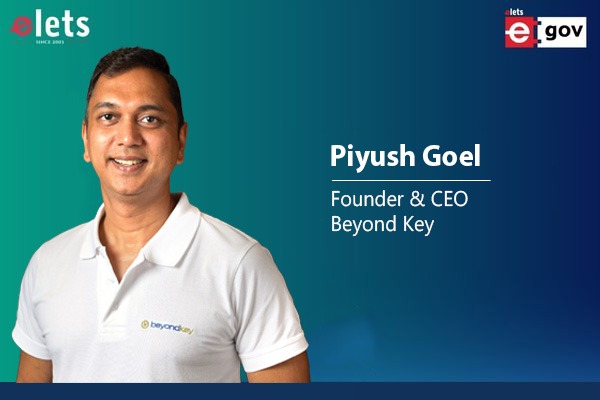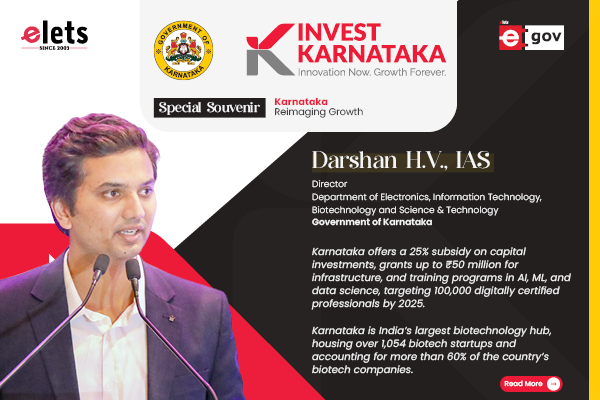
In addition to adopting intelligent and integrated urban planning approaches, we are in the process of formulating a comprehensive Master Plan for the city, with a strong emphasis on sustainability in all its facets, shares Shekhar Singh, IAS, Commissioner, Pimpri-Chinchwad Municipal Corporation and CEO, Pimpri-Chinchwad Smart City Ltd in an exclusive interaction with Vikas Nag of Elets News Network (ENN).
Pimpri-Chinchwad is a rapidly growing city in Maharashtra and it is known for its industrial and economic activities. Could you highlight some of the key developmental challenges and opportunities you have encountered in your role?

There are a myriad of developmental challenges and opportunities in our rapidly growing city. One of the most pressing issues is traffic management and congestion. The city’s industrial and commercial activities have led to severe traffic congestion, affecting daily commuting and the environment. To address this challenge, we are actively seeking innovative solutions to improve transportation systems, emphasising the development of efficient public transportation options to reduce congestion and enhance mobility.

Ensuring a consistent and clean water supply is another significant challenge. The city’s growing population and industrial demands have put immense pressure on our water supply and sewage infrastructure. We are prioritising the expansion and upgrading of these systems to meet the increasing demand while maintaining water quality. To this end, we have initiated a comprehensive survey and condition assessment of all underground drainage lines and open nallahs in the city and have plans to upgrade the entire sewage system starting after December.

Urban planning and zoning are crucial to managing the city’s rapid growth and preventing haphazard development. The sprawling urban landscape calls for careful planning to maintain a balanced and organised urban environment. Opportunities abound for integrated urban planning to create sustainable, well-designed communities that cater to the needs of our residents.

Sustainability and environmental conservation are paramount in our city’s development. Balancing industrial growth with environmental protection is challenging but essential for our long-term well-being. We are actively managing air and water pollution, conserving green spaces, and promoting sustainable practices. Notable measures include initiatives like C&D waste management, Waste to Energy, and converting hotel waste to biogas. PCMC has established a sustainability cell dedicated to working on social, economic, and environmental issues, aligning our efforts with global sustainability goals at the local level.
While the city boasts significant economic activities, there is still room for improvement in the quality of education and vocational training. We are committed to enhancing educational opportunities for our residents, particularly those in public schools. Efforts are underway to improve the quality of education and vocational training programs. In this dynamic environment, we see ample opportunities to equip our local workforce with the skills needed for evolving industries, fostering employment opportunities and driving economic growth. We are actively revamping our ITIs and collaborating with esteemed universities and industries to enhance employability in our city.
The importance of accessible and quality healthcare infrastructure became evident during the Covid-19 pandemic. We are working diligently to expand healthcare facilities and improve public health infrastructure to make it accessible and affordable for all. Initiatives like the Ward health action plan are being developed to decentralise healthcare problem- solving. Additionally, we are constructing a specialised cancer hospital and enhancing secondary hospitals with super-specialty facilities to ensure better quality and accessibility of healthcare provision. Our CHWC/Jijau clinics are already providing healthcare services to people from all walks of life, contributing to our goal of building a healthier city.
How do you plan to address issues related to urban planning and infrastructure development in Pimpri-Chinchwad to accommodate the growing population?
First and foremost, we intend to embrace smart and integrated urban planning practices that prioritize sustainable growth. We are developing the Master Plan for the city which will be comprehensive, with a keen focus on sustainable development aspects. This encompasses revisiting zoning regulations to encourage mixed-use developments, fostering the creation of green corridors and green public spaces, and optimizing land use to prevent unchecked urban expansion. Simultaneously, transportation improvements will be an important part of our strategy, with an emphasis on expanding and enhancing public transportation options like buses and metro systems. We are encouraging non-motorized modes of transport, such as cycling and walking, in the planning that will contribute to a healthier, more eco-friendly city. The Harit Setu Master Plan intends to achieve the same by building dedicated lanes for NMT and ensuring access to public services through sustainable modes. Policies such as Hawkers policy, Waste management, parking policy and management will also be an integral part of the master plan. The comprehensive mobility plan and the non-motorised transport plan have also been taken into consideration in the master plan development.
Furthermore, we recognize the significance of infrastructure expansion to meet the surging demand. To this end, substantial investments will be allocated to augmenting the capacity of critical infrastructure elements, such as water supply systems, wastewater treatment plants, and sewage networks. Ensuring that these systems not only meet the needs of the present but are also future-ready is essential. Public-Private Partnerships (PPPs) will play a pivotal role in expediting infrastructure development, allowing us to pool resources and expertise with private enterprises to fund and execute key projects. This helps in reducing the burden on public finances and ensuring timely implementation. PCMC has also launched its first Municipal Bond for funding the Riverfront development and rejuvenation project and we are also exploring other avenues of innovative financing to tackle the urban issues that are faced by the city.
How are you tackling environmental and sustainability challenges in the context of urbanisation in Pimpri-Chinchwad?
PCMC City strategy for 2030, clearly mentions the pathways and initiative programmes the city must adopt to be a sustainable city. Taking ahead the vision that we charted out, we have been focusing on encouraging and implementing initiatives that are environmentally positive.
To tackle the challenges of air pollution, clean sanitation and sustainable mobility, we have started our award-winning initiatives like, Navi Disha, a community led toilet model by engaging women and the Harit Setu Master Plan.EV initiatives and strengthening of policies to encourage low emission mobility have already started in the city. We have incentives for auto drivers to purchase e-autos. Various waste management initiatives are already in place in the Moshi Kachra depot, such as the waste to energy plant, C&D waste plant which also contributes to the circular economy.
We have launched the city’s Sustainability Cell, which will be taking up activities under the environment, economy and social development sectors in a steadfast manner soon to ensure that we achieve the SDGs at a local level. The cell, under the guidance of the Environment and all the other relevant departments,will be continuously monitoring the sustainable initiatives under the cell and striving to learn and improve. As an integral part of the Urban Local Body, the Sustainability Cell will also work towards achieving targets set by various national and international frameworks, ensuring an improved quality of life for PCMC’s populace.
The Sustainability Cell will focus on diverse areas across six themes:
a) Environment Conservation: Improve water and sanitation services, implement climate actions, promote circular economy practices, and transition to renewable energy generation and consumption.
b) Sustainable Transport and Mobility: Promote low-emission and energy- efficient modes of transportation, enhance accessibility and inclusivity, and address safety concerns.
c) Sustainable Urban Landscape: Enhance urban green cover and open spaces, conserve biodiversity, curb urban sprawl, and provide recreational spaces in the city.
d) Disaster Resilience: Strengthen disaster risk reduction measures, mitigate and adapt to climate change impacts, and establish early warning systems for effective disaster response.
e) Social Development and Inclusion: Ensure inclusivity, empowerment, well-being, education, safety, and accessibility for all residents, improving overall quality of life.
f) Sustainable Finance and Innovation: Identify sustainable financing mechanisms, such as green bonds and carbon credits, promote the adoption of low-carbon technologies, and foster partnerships for innovative financing.
What role do you see technology playing in the advancement of municipal services and governance in Pimpri-Chinchwad?
Leveraging technology will be another core element of our approach. The implementation of smart city initiatives has helped in harnessing data and technology to optimise various aspects of urban life. Smart traffic management systems, waste monitoring solutions, and energy-efficient street lighting are some examples of how technology can enhance the efficiency and sustainability of the city’s infrastructure. Embracing technology is also pivotal for effective urban planning. Our citizen application, Smart Sarathi, has helped in gathering citizen grievances and effective governance. The citizen can also use the app for payment of taxes. We are also working on a GIS based ERP system which will help with better governance for service management.
Community engagement and participation are crucial for effective local governance. How do you encourage citizen involvement in decision-making processes and civic initiatives?
Community engagement is crucial to the success of our plans. We are trying to actively involve residents in the decision-making process, soliciting their input on development projects and seeking feedback to ensure that our plans align with their aspirations and address their specific needs. We had one for the road development work that was done for Dapodi to Nigdi, Aditya Birla Hospital to Hinjewadi, Kunal Icon road, Telco road. We also encourage the citizens to give us constructive recommendations on the policies that we launch for various initiatives. Regular Jansamvad sessions are conducted with the department officials and the citizens to discuss grievances and solutions. Smart Sarathi has turned out to be an excellent platform for conversing with the citizens. We have even started crowdsourcing content for the app from the citizens, so this app is for the citizens and by the citizens.
Be a part of Elets Collaborative Initiatives. Join Us for Upcoming Events and explore business opportunities. Like us on Facebook , connect with us on LinkedIn and follow us on Twitter, Instagram.
"Exciting news! Elets technomedia is now on WhatsApp Channels Subscribe today by clicking the link and stay updated with the latest insights!" Click here!













